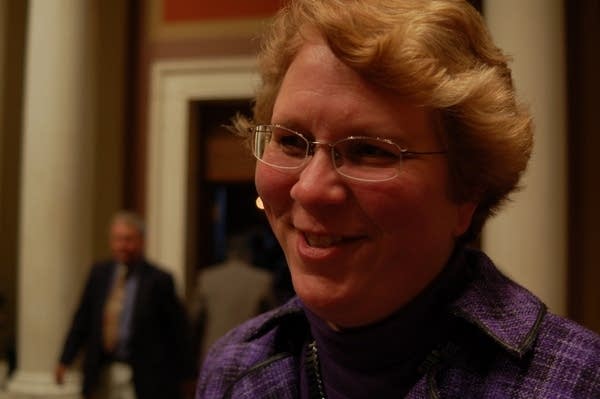After the override, the fallout
Go Deeper.
Create an account or log in to save stories.
Like this?
Thanks for liking this story! We have added it to a list of your favorite stories.

It was a rare political defeat for Pawlenty, who has vetoed three dozen bills in his five years in office. There are mixed opinions at the Capitol about whether the override will sour the relationship between the Republican governor and DFL lawmakers.
Six House Republicans broke party ranks to vote in favor of the veto override. In a conference call from Washington, D.C., Pawlenty said he tried hard to convince GOP lawmakers to sustain his veto. He described the vote as disappointing.

But Pawlenty also told reporters that the transportation funding bill was a unique issue. He said he doesn't expect Republicans to split with him again anytime soon.
"It may actually have the effect of bolstering their desire to be on the team or to support fiscal conservative approaches, because now that they have voted this way in this manner they may be more motivated to try to help in other matters," he said.
Turn Up Your Support
MPR News helps you turn down the noise and build shared understanding. Turn up your support for this public resource and keep trusted journalism accessible to all.
Pawlenty also said he's not sure what impact the veto override will have on the rest of the 2008 session.
House Speaker Margaret Anderson Kelliher, DFL-Minneapolis, said she expects the working relationship between the DFL House and the governor to stay positive.
"We look forward to the governor returning from Washington, D.C., later in the week, and working with him on a number of issues and moving forward," she said. "We also look forward to working with a number of our colleagues from across the aisle on a number of issues."
"The Democrats had the votes. They had the numbers, and they jammed it through."
DFL Senate leaders offered a similar expectation. But Sen. Geoff Michel, R-Edina, is less optimistic. Michel predicted hard feelings will linger at the Capitol.
"I worry that this will poison our ability to work in a bipartisan fashion," he said. "The Democrats had the votes. They had the numbers, and they jammed it through. They can talk about compromise, but there's really no Republican fingerprints or ownership on this bill."
And that lack of fingerprints allows Pawlenty to blame the Democrats for a tax increase while his transportation department can use the extra revenue to address the state's transportation problems.
The bill raises the gas tax by a nickel a gallon by the end of this year, with the money going to road and bridge projects. It also phases in another 3-and-a-half cent per gallon surcharge to pay off road construction debt. It raises license tab fees on new cars, and adds a quarter cent to the sales tax in the metro area, with the money going to transit.
Republicans in the House who supported the override called it the one of the hardest votes they ever made. The defections have also brought political consequences.
Local GOP leaders held back their endorsement of Rep. Kathy Tingelstad, R-Andover. Rep. Jim Abeler, R-Anoka, said he's also taking a lot of heat.

"I hope that when my own local Republicans understand the actual bill, the merits, the need, and how this is not going to become a habit where I override the governor, but this is a one time override based on a very critical need, that they'll understand that," he said. "We'll find out."
There have also been repercussions within the House Republican caucus for those GOP members who voted to override. Rep. Rod Hamilton, R- Mountain Lake, voluntarily gave up his lead role on the agriculture committee. Rep. Bud Heidgerken, R-Freeport, lost his GOP lead spot on the K-12 finance committee. But Heidgerken said he didn't get a choice.
"I was told that if I don't fall in line, this is what is going to happen," he said.
Minority Leader Marty Seifert of Marshall said the House GOP caucus will review leadership positions as well as the staff resources available to its members later this week.
Seifert insists the six lawmakers are still his friends, but he said they'll all likely face tough challenges to their party endorsements for re-election.
"The issue I think is what's going to percolate up from the bottom, not what's going to come down from the top," he said. "Really the voters are the ultimate accountability mechanism when it comes to legislators."
Seifert is also predicting consequences for DFL legislators after voters begin feeling the impact of the gas tax increases and other fees included in the transportation bill.
Using a Civil War analogy, Seifert equated the override to a Bull Run defeat. He views Nov. 4, when the entire House is up for re-election, as a potential Gettysburg win for Republicans.




